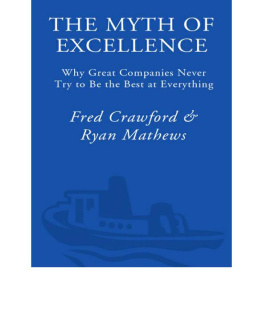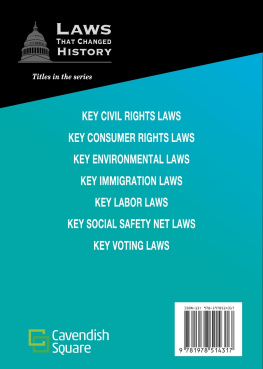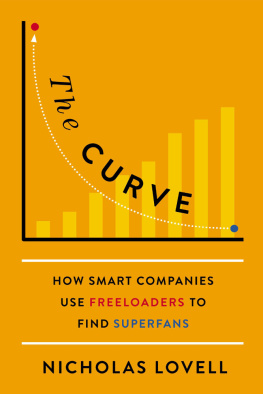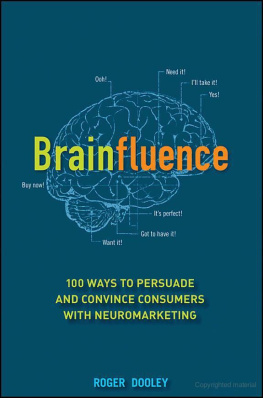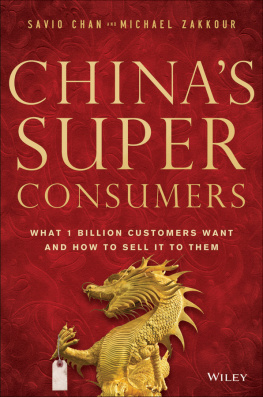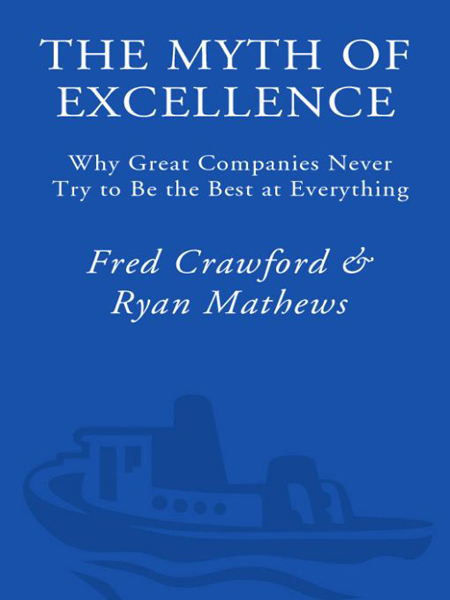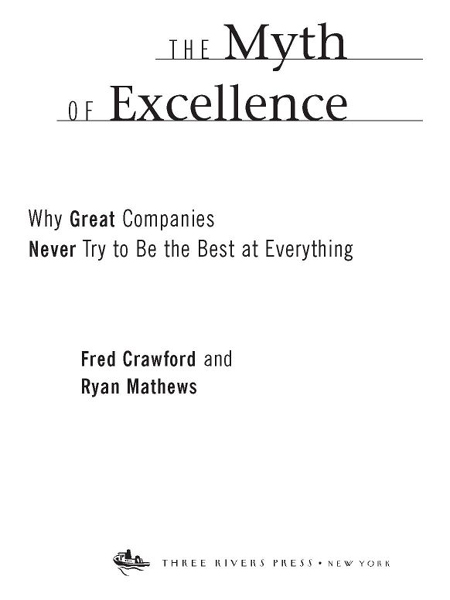Fred Crawford - The Myth of Excellence: Why Great Companies Never Try to Be the Best at Everything
Here you can read online Fred Crawford - The Myth of Excellence: Why Great Companies Never Try to Be the Best at Everything full text of the book (entire story) in english for free. Download pdf and epub, get meaning, cover and reviews about this ebook. year: 2007, publisher: Crown Business, genre: Business. Description of the work, (preface) as well as reviews are available. Best literature library LitArk.com created for fans of good reading and offers a wide selection of genres:
Romance novel
Science fiction
Adventure
Detective
Science
History
Home and family
Prose
Art
Politics
Computer
Non-fiction
Religion
Business
Children
Humor
Choose a favorite category and find really read worthwhile books. Enjoy immersion in the world of imagination, feel the emotions of the characters or learn something new for yourself, make an fascinating discovery.
- Book:The Myth of Excellence: Why Great Companies Never Try to Be the Best at Everything
- Author:
- Publisher:Crown Business
- Genre:
- Year:2007
- Rating:3 / 5
- Favourites:Add to favourites
- Your mark:
The Myth of Excellence: Why Great Companies Never Try to Be the Best at Everything: summary, description and annotation
We offer to read an annotation, description, summary or preface (depends on what the author of the book "The Myth of Excellence: Why Great Companies Never Try to Be the Best at Everything" wrote himself). If you haven't found the necessary information about the book — write in the comments, we will try to find it.
What do customers really want? And how can companies best serve them? Fred Crawford and Ryan Mathews set off on what they describe as an expedition into the commercial wilderness to find the answers. What they discovered was a new consumer -- one whom very few companies understand, much less manufacture products for or sell products or services to. These consumers are desperately searching for values, a scarce resource in our rapidly changing and challenging world. And increasingly they are turning to business to reaffirm these values. As one consumer put it: I can find value everywhere but cant find values anywhere.
Crawford and Mathewss initial inquiries eventually grew into a major research study involving more than 10,000 consumers, interviews with executives from scores of leading companies around the world, and dozens of international client engagements. Their conclusion: Most companies priding themselves on how well they know their customers arent really listening to them at all. Consumers are fed up with all the fuss about world-class performance and excellence. What they are aggressively demanding is recognition, respect, trust, fairness, and honesty.
Believing that they are still in a position to dictate the terms of commercial engagement, businesses have bought into the myth of excellence -- the clearly false and destructive theory that a company ought to be great at everything it does, that is, all the components of every commercial transaction: price, product, access, experience, and service. This is always a mistake because the predictable outcome [is] that the company ends up world-class at nothing; not well-differentiated and therefore not thought of by consumers at the moment of need.
Instead, Crawford and Mathews suggest that companies engage in Consumer Relevancy, a strategy of dominating in one element of a transaction, differentiating on a second, and being at industry par (i.e., average) on the remaining three. Its not necessary for businesses to equally invest time and money on all five attributes, and their customers dont want them to. Imagine the confusion if Tiffany & Co. started offering deep discounts on diamonds and McDonalds began selling free-range chicken and tofu.
The Myth of Excellence provides a blueprint for companies seeking to offer values-based products and services and shows how to realize the commercial opportunities that exist just beyond their current grasp -- opportunities to reduce operating costs, boost bottom-line profitability, and, most important, begin to engage in a meaningful dialogue with customers.
From the Hardcover edition.
Fred Crawford: author's other books
Who wrote The Myth of Excellence: Why Great Companies Never Try to Be the Best at Everything? Find out the surname, the name of the author of the book and a list of all author's works by series.

